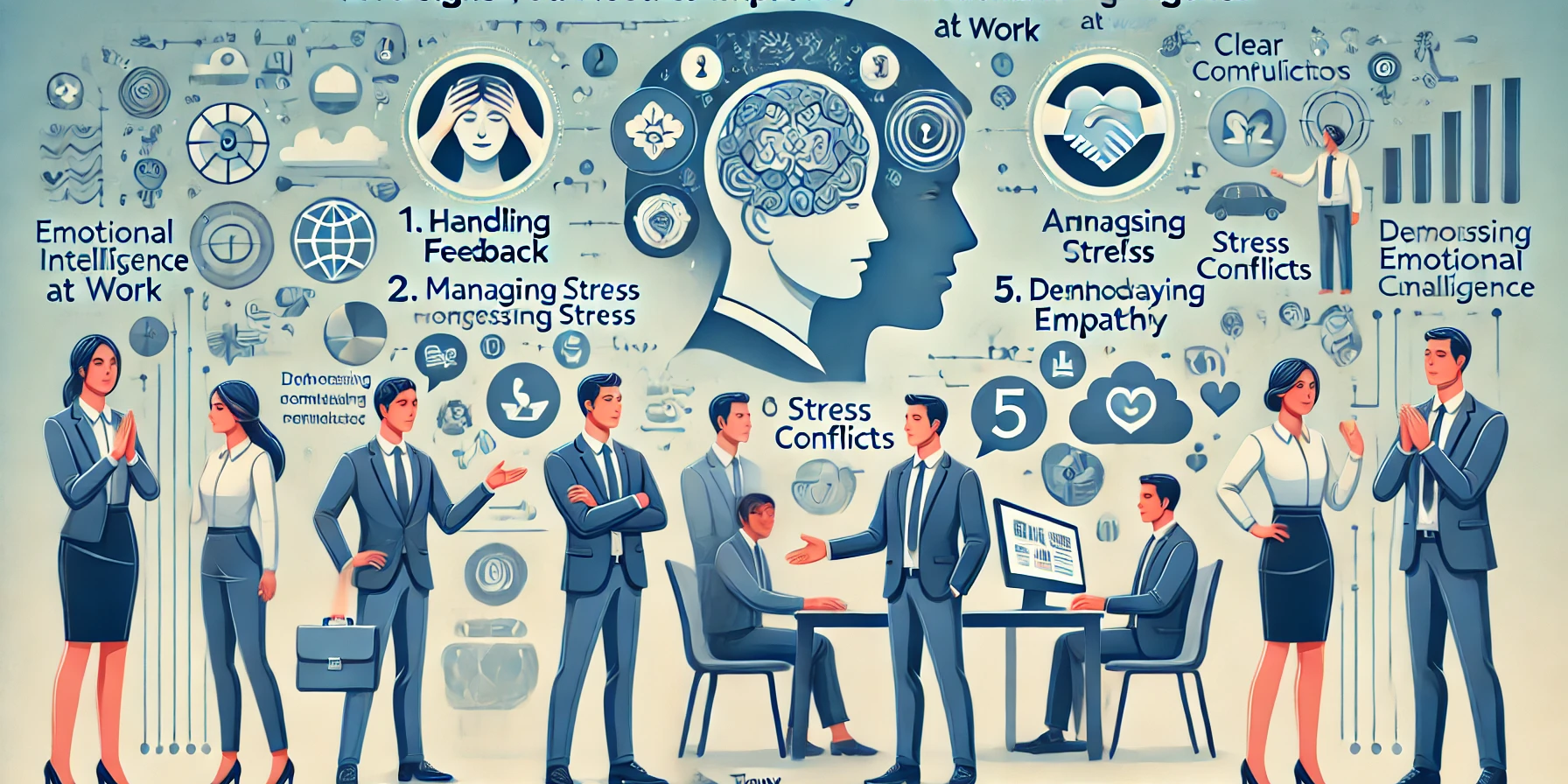Why Emotional Intelligence Matters in the Workplace
Emotional intelligence isn’t just a buzzword—it’s a critical skill that defines how well you navigate workplace relationships, handle stress, and lead teams. At The Winning Mind Set, we believe emotional intelligence is the cornerstone of effective leadership, teamwork, and communication.
But how do you know if your emotional intelligence needs improvement? Let’s explore five key signs and actionable ways to address them.
1. You Struggle to Handle Feedback
Feedback is an essential part of professional growth, yet many people react defensively or emotionally when receiving it. If you find yourself dismissing constructive criticism or taking it personally, it could indicate low emotional intelligence.
Actionable Tip: Pause and listen actively when receiving feedback. Take time to process it before responding. Leadership coaching can help you view feedback as a growth opportunity rather than a personal attack.
2. You Have Difficulty Managing Stress
Workplace stress is unavoidable, but how you handle it makes all the difference. If stress frequently overwhelms you, affects your mood, or impacts your decision-making, it’s a sign your emotional intelligence needs work.
Actionable Tip: Practice stress management techniques like mindfulness, deep breathing exercises, or time management strategies. Coaching sessions at The Winning Mind Set can equip you with practical tools to remain calm under pressure.
3. You Avoid or Escalate Conflicts
Conflict resolution is an essential leadership skill, but many people either avoid addressing issues or react impulsively, making matters worse. If you notice unresolved tensions within your team or frequent misunderstandings, low emotional intelligence could be a contributing factor.
Actionable Tip: Approach conflicts calmly and listen to all perspectives before jumping to conclusions. A leadership coach can help you build the skills needed to address conflicts with empathy and professionalism.
4. You Struggle with Empathy
Empathy allows you to understand and share the feelings of others, building trust and connection. If your team feels unheard, undervalued, or misunderstood, it might point to a lack of emotional intelligence.
Actionable Tip: Make a conscious effort to listen without interrupting and ask open-ended questions to understand your team members better. Coaching can help you develop empathy by improving active listening and emotional awareness.
5. Your Communication Lacks Clarity or Impact
Effective communication isn’t just about speaking—it’s about being understood. If your messages are frequently misinterpreted, or if team members hesitate to approach you with concerns, emotional intelligence could be the missing piece.
Actionable Tip: Work on expressing your thoughts clearly and with respect. Pay attention to your tone and body language. Leadership coaching provides tailored techniques to refine your communication style.
How Coaching at The Winning Mind Set Can Help
Improving emotional intelligence doesn’t happen overnight. It requires self-awareness, practice, and guidance. At The Winning Mind Set, our coaching programs are designed to help you:
- Build self-awareness and recognize emotional triggers.
- Develop better stress and conflict management strategies.
- Strengthen empathy and active listening skills.
- Enhance clarity and confidence in communication.
Our personalized approach focuses on real-world challenges, offering practical tools you can apply immediately in your professional life.
Final Thoughts
Recognizing the signs of low emotional intelligence is the first step toward positive change. Whether it’s handling feedback with grace, managing stress effectively, or fostering better team connections, emotional intelligence plays a crucial role in workplace success.
If you’re ready to enhance your emotional intelligence and create a more positive and productive work environment, The Winning Mind Set is here to guide you every step of the way. Contact us today to learn more about our coaching programs and take the first step toward becoming an emotionally intelligent leader.






